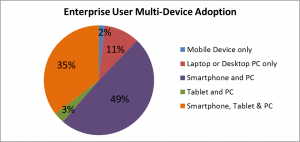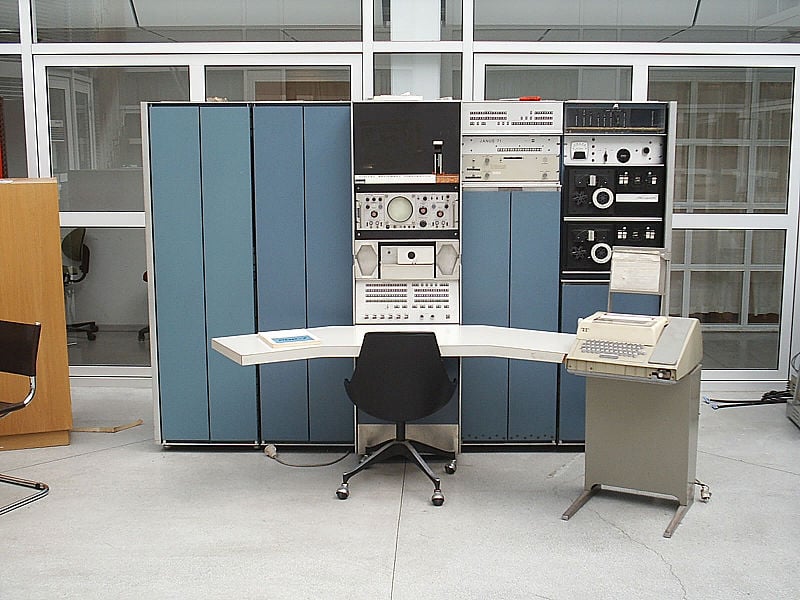IT marketing hype has generated quite a few ridiculous and sometimes outright bizarre phrases to describe trends in technology adoption, but few on the list of the absurd top the insistence that we live in a “post-PC” era. The concept of “post-PC” derives from the (correct) fact that mobile device adoption has broadly accelerated, but makes the incorrect assumption that this is causing a substantial decrease in PC use. Nothing could be further from the truth – especially in relation to the business use of desktop and laptop PCs.
Maybe We Should Call It The “Pre-Post-PC” Era?
By Steve Brasen on Jun 6, 2013 9:48:41 AM
Dell’s Clean Slate Approach to Enterprise IT
By Torsten Volk on May 8, 2013 7:22:09 PM
Breaking News: Dell Acquires Enstratius to Further Complete Its Cloud Story
Dell’s Clean Slate Approach to Enterprise IT
By Torsten Volk on May 3, 2013 12:05:21 PM
Breaking News: Dell Acquires Enstratius to Further Complete Its Cloud Story
OpenStack Thoughts – Part 1: Key Business Considerations
By Torsten Volk on Apr 22, 2013 10:27:18 AM
OpenStack’s huge momentum is undeniable. IBM, RedHat, NetApp, Rackspace, HP, Dell, Cisco, Intel and even VMware have committed significant funds and human resources to this project. But why would companies, that are otherwise competing rather fiercely, sit on one table to build an OpenSource cloud platform?
OpenStack Thoughts – Part 1: Key Business Considerations
By Torsten Volk on Apr 22, 2013 10:01:57 AM
OpenStack’s huge momentum is undeniable. IBM, RedHat, NetApp, Rackspace, HP, Dell, Cisco, Intel and even VMware have committed significant funds and human resources to this project. But why would companies, that are otherwise competing rather fiercely, sit on one table to build an OpenSource cloud platform?
On the Importance of Workload Automation in the Age of Cloud and Big Data
By Torsten Volk on Mar 27, 2013 10:03:12 AM
With its roots in mainframe job scheduling, workload automation is often seen as a relic in today's age of cloud, Big Data, mobile management and DevOps. Do we even still need workload automation as a separate discipline or should we simply roll the management of batch jobs into other automation disciplines, such as IT process automation? Is the market for workload automation software stagnating or is there still potential for growth?
The Software Defined Datacenter: Part 4 of 4 – Where We Are Today
By Torsten Volk on Mar 26, 2013 3:58:50 PM
Almost one year into the discussion about the Software Defined Data Center (SDDC), it is time to take inventory of the state of the discipline. As a reminder, the ultimate goal of the SDDC is to abstract and centralize the
management of compute, network, storage, operating systems, middleware and applications in order to dynamically place workloads where they can run in the most cost efficient, secure and compliant manner.
The Software Defined Datacenter: Part 4 of 4 – Where We Are Today
By Torsten Volk on Mar 25, 2013 9:34:24 AM
Almost one year into the discussion about the Software Defined Data Center (SDDC), it is time to take inventory of the state of the discipline. As a reminder, the ultimate goal of the SDDC is to abstract and centralize the
management of compute, network, storage, operating systems, middleware and applications in order to dynamically place workloads where they can run in the most cost efficient, secure and compliant manner.
The Software-Defined Datacenter: Part 3 of 4 – Questions and Battlefields
By Torsten Volk on Sep 24, 2012 11:24:05 AM
After talking about the “grand vision” of the Software Defined Datacenter (SDD) in part 1 of this series and discussing the individual components required to build out the SDD in part 2, this third part will be all about the three core challenges and controversies:
The Software-Defined Datacenter: Part 3 of 4 – Questions and Battlefields
By Torsten Volk on Sep 24, 2012 8:58:53 AM
After talking about the “grand vision” of the Software Defined Datacenter (SDD) in part 1 of this series and discussing the individual components required to build out the SDD in part 2, this third part will be all about the three core challenges and controversies:










